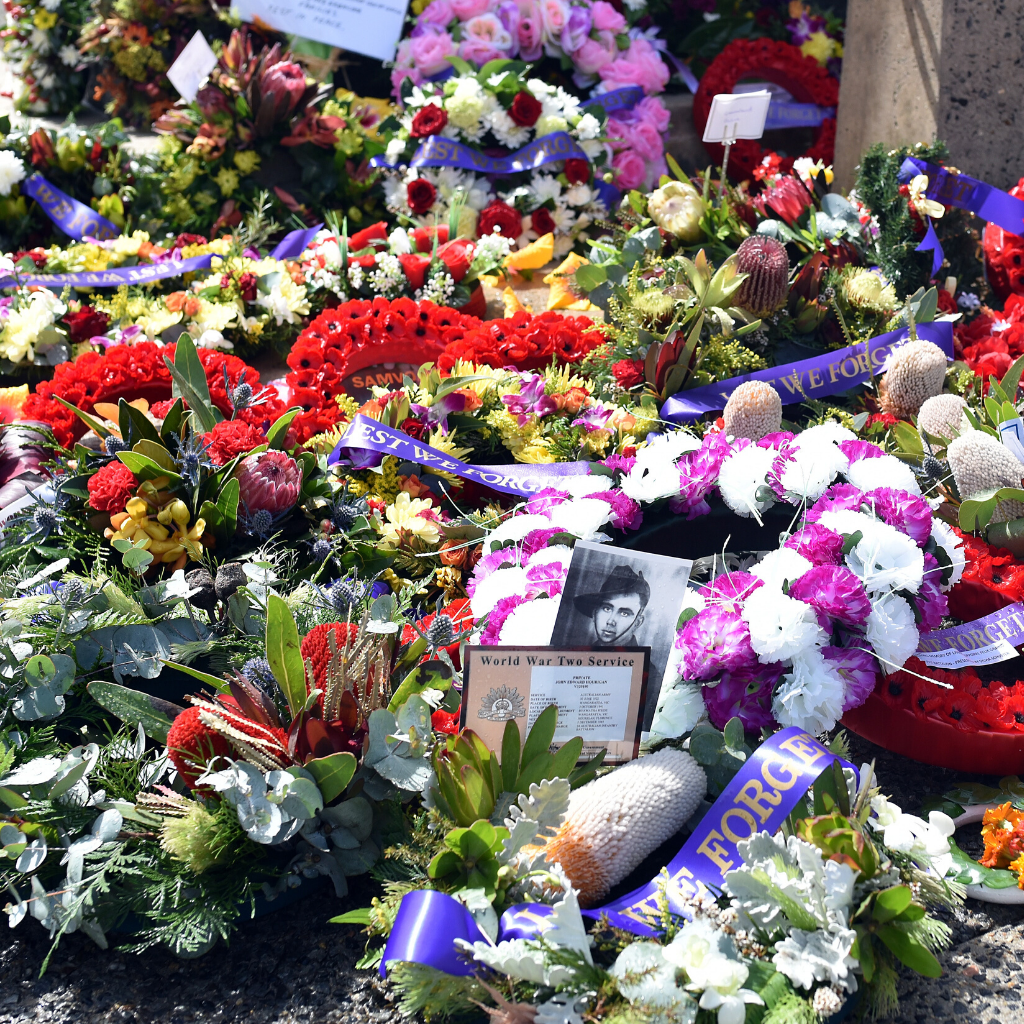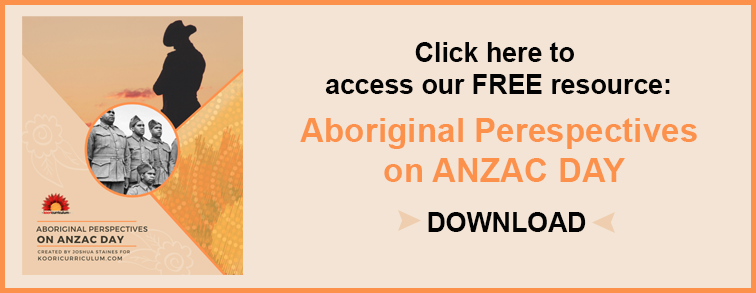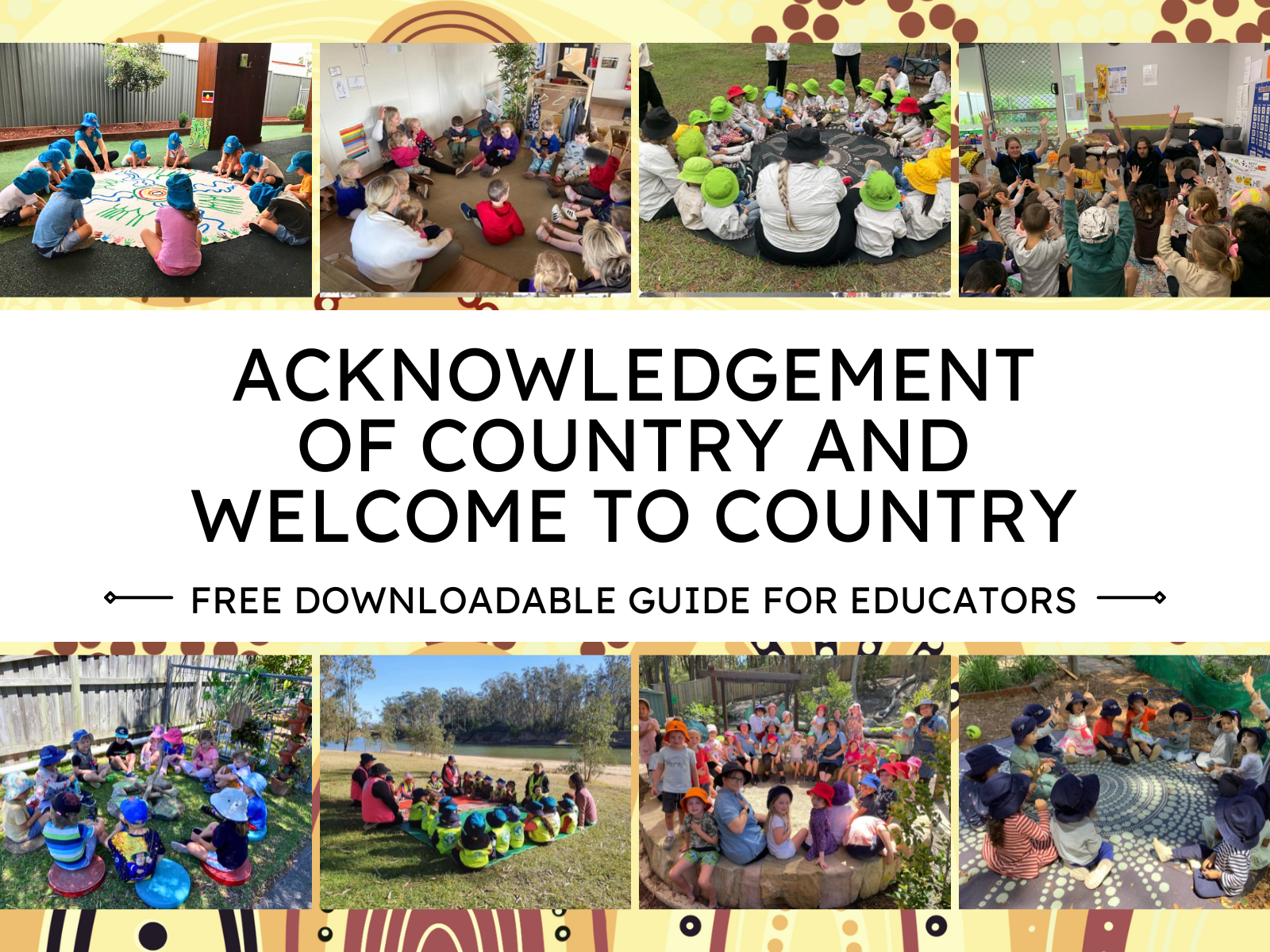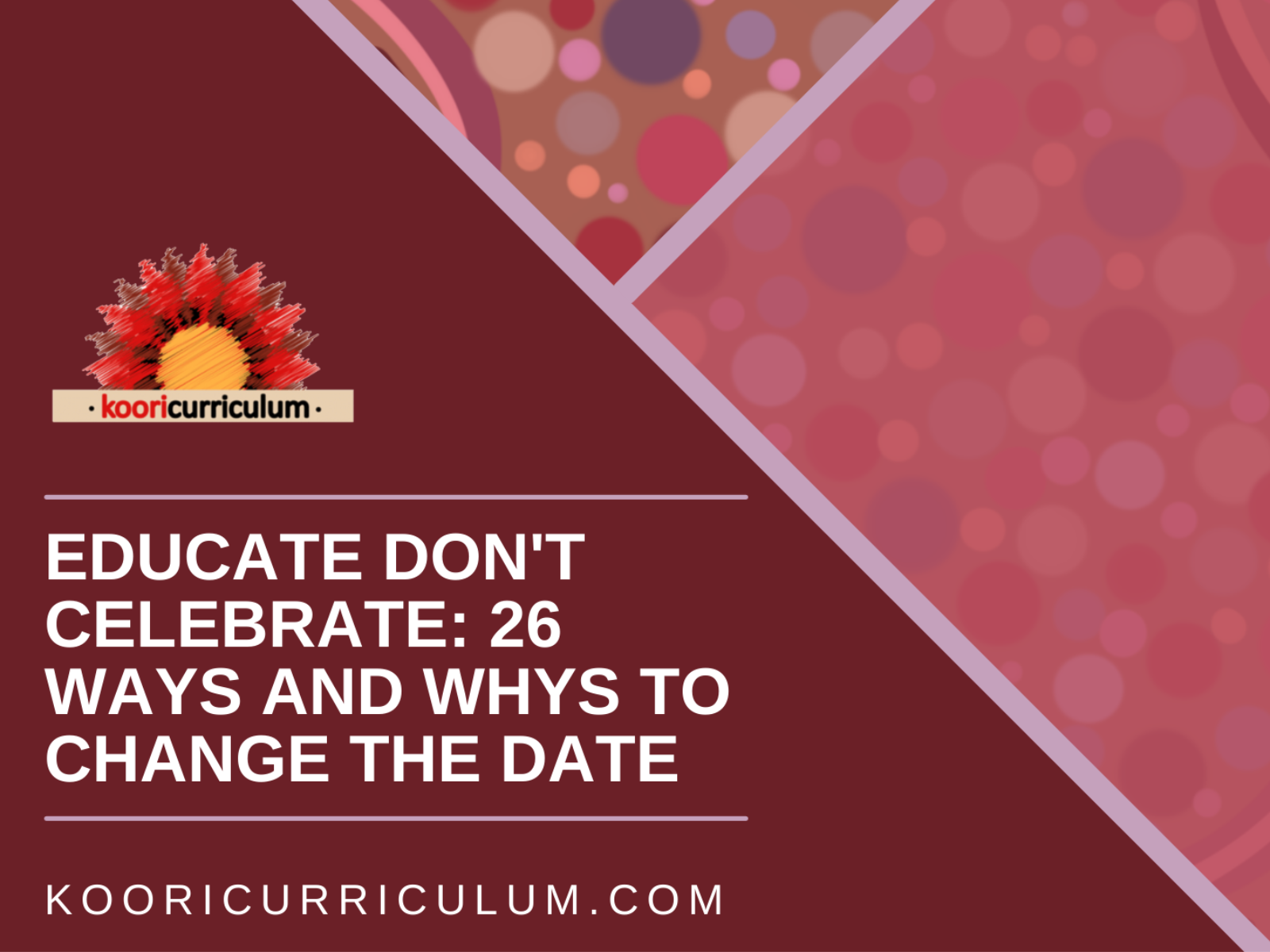
ANZAC Day - Aboriginal Servicemen and Women
We all should be acknowledging Aboriginal service men and women during ANZAC Day the same way that we honour and show respect to all service men and women. For many this will sound like a no brainer, why wouldn’t we acknowledge Aboriginal service men and women during ANZAC Day? However historically this wasn’t a given and in fact Aboriginal people who served during WW1 and WW2 experienced severe racism and discrimination upon their return.
It is estimated that over 1000 Aboriginal people served in WW1 and additionally over 5000 who joined in WW2. Whilst Indigenous soldiers fought side by side their non- Indigenous brothers and sisters to protect Australian soil when they returned there was little to no acknowledgement. Returned Aboriginal soldiers were not eligible to receive returned servicemen land grants, many had their pensions and gratuities held in trust and were not allowed to become members of RSL’s.
In 2007 the Redfern community held the first Coloured Diggers March in which my Father and Brother took part. My Uncles names were added to the war memorial in Redfern Park and my Dad laid a reef in their memory whilst my Brother and his dance group lead the procession up the main street. It took a lot longer to get there than what it should of but we all felt that finally we were healing and acknowledging our ancestors the way they always should have been.
I was disgusted when earlier this year it was announced that RSL branches in WA were consciously and actively deciding to once again not acknowledge Aboriginal people during their ANZAC Day ceremonies. This would include not flying our flag and not having a welcome or acknowledgement of country take place.
I won’t repeat the commentary or their justification, however if you would like more information see here …….
However, when I read the organisers unwillingness to acknowledge our communities service I was hurt and disappointed as I felt that once again we had taken a huge backwards step. I sometimes feel that we exist within a bubble in early childhood. We are often surrounded by like minded educators who share views of inclusion, respect for diversity, anti bias, anti racism and social justice principles and practices. I truly believe that the work we do in our profession will be the catalyst for change. I am already seeing the ripple effect of educators work where families are learning about Aboriginal culture and history for the first time through the knowledge of their three and four year old children.
You don’t know what you don’t know but once we know we all have an ethical responsibility to do something about it. I will be wearing red, black and yellow this ANZAC Day in solidarity and to show respect to Aboriginal service men and women who fought and continue to do so to protect our great country.
Learn more by:
- Read a book that I’ve revisited a few times over the years is titled “Serving Our Country; Indigenous Australians, War, Defence and Citizenship” Edited by Joan Beaumont and Allison Cadzow. We need to understand what happened, historical acceptance is key in Reconciliation and I feel that collectively we don’t know enough about Australias Blak history.
- Visit Deadly Story https://www.deadlystory.com/page/culture/articles/anzac-day-2018
- Watch the documentary Blak ANZAC
- Tune into NITV on ANZAC Day




